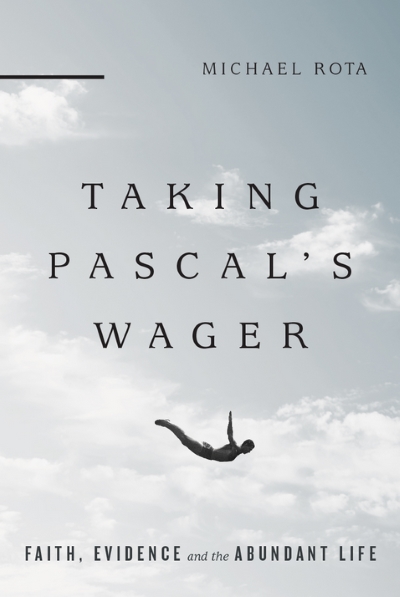Podcast: Play in new window | Download
Subscribe: Spotify | Email | RSS
Is there evidence for God’s existence? In this episode we continue our discussion with Dr. Michael Rota about his new book Taking Pascal’s Wager: Faith, Evidence and the Abundant Life. This time we briefly canvass some issues he discusses in parts 2 and 3 of the book, including:
- a cosmological argument that there’s at least one necessary bein
 g
g - a fine-tuning argument that there’s an intelligent designer of the universe
- the multiverse hypothesis as an explanation for apparent fine-tuning
- the problem of evil
- the problem of of divine hiddenness
- the role the resurrection of Jesus plays in justifying Christian teachings
- the relevance of looking into the lives of exemplary Christians, like the fascinating people he discusses in part 3 of the book
Of course, the book boldly plunges into several hard topics, and we can only scratch the surface here. A serious inquirer should read this accessible, well-crafted book, and even delve into the many important sources he cites in it.
[spp-tweet tweet=”Is there evidence for God’s existence?”]
Links for this episode:
- Dr. Rota’s home page

- cosmological argument
- fine-tuning arguments
- Physicist Leonard Susskin on the apparent fine-tuning of our cosmos
- Roger White, “Fine-tuning and multiple universes“
- Søren Kierkegaard
- Peter van Inwagen
- Eleonore Stump
- Gary Habermas, “The Minimal Facts Approach to the Resurrection of Jesus“
- Acts 2:22-24
- This episode’s thinking music is “Phase IV“ by lo-fi is sci-fi.

I was somewhat disappointed with this podcast.
What’s the value of trying to prove a probability for the existence of God by appealing to unscientific theoretical ideas like “The Cosmic Constant” and “dark matter” and “multiverses”? Mathematical equations can’t explain the existence of anything. The Fine Tuning argument based upon supposed “physical constants” is entirely presumptuous.
Physicists have to make up a lot of stuff in order to “fix” the numerous problems with their equations. Believing that over 60% (or more) of the energy in the universe supposedly comes from “dark matter” (which nobody has ever actually proven is even out there) takes a lot of faith. There is also no evidence of “multiple universes” where these other imaginary “constants” supposedly exist.
It seems much more reasonable just to believe in the God of Israel because there is actually historical evidence and (human testimony in scripture) that He exists.
Comments are closed.